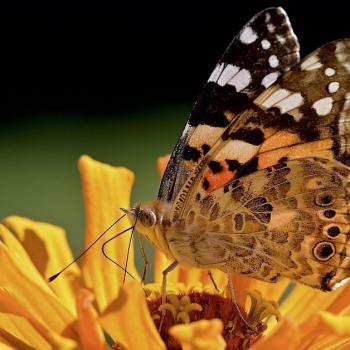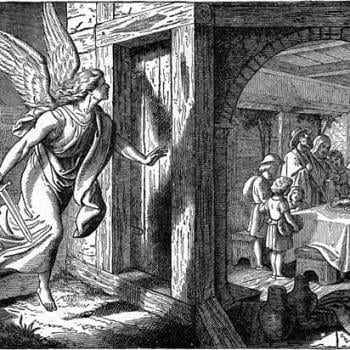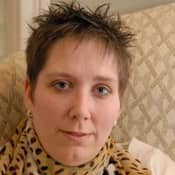In my column, on my blog, and through my various other writings, I often talk about the process of reclaiming our ancestral traditions and restoring our ancient religions. As modern Pagans, Heathens, and Wiccans, we're all engaged in this process to some degree or another. We are reaching into the past across a chasm of nearly two thousand years of monotheistic dominance and attempting to pick up the threads of belief, devotion, and practice that were so effectively sundered generations ago. We are in the process of building and rebuilding our traditions.
There are times when, given the permutations and challenges facing contemporary Paganisms, that such restoration seems like a daunting if not impossible undertaking. Finding a place to begin can be very confusing. More and more of us, however, are turning to ancestor veneration as a necessary and fundamental starting point.
Ironically, this would have been obvious to many of those self-same ancestors. Honoring the dead is an integral part of most indigenous religions. It certainly had its place in nearly every ancient Pagan or Heathen religion. It was and remains the first and most essential point of spiritual connection. Now I'm not going to belabor this point here. I'd be giving away the meat of the interview to follow. I will only speak for a moment as a priest and a shaman: Our ancestors are pushing for contact. They want to be heard. They want to be honored. They want to work with us in this process of restoration. We're not alone; and it's people like Laura Patsouris, a devoted Ancestor Worker who has been teaching about the ins and outs of ancestor veneration for years from her New England home, who are paving the way for that communication.
I first met Laura in 2010 through a mutual acquaintance. She and I had the pleasure of working together at a recent interfaith conference (the Changing Times, Changing Worlds conference this past November), and I have been consistently impressed with the integrity, depth, and quality of her work. She is an Ancestor Worker of immense skill. I'm very happy to say that Laura has just seen the publication of her first book Weaving Memory: A Guide to Honoring the Ancestors through Asphodel press and I was particularly happy that she was willing to sit down with me to be interviewed. For purposes of full disclosure, I was Asphodel's initial editor for her book and I also wrote the Foreword. This is an important book. For all those people who want to honor their dead but have no idea how, it's indispensable. It's a book I wish I'd had twenty years ago. It would have saved me a lot of pain.
This interview was conducted the evening of January 26, 2011.
Tell me a little bit about yourself. How did you come to Heathenry?
Purely by accident! I had been aware of Heathenry because of some Heathen friends and acquaintances, and I became familiar with the Heathen worldview; but I am Cuban and grew up in Miami. My background was in Santeria and Afro-Cuban traditional practices. Growing up I thought eventually I'd make the Saint (undergo Santeria initiation), but every time I'd go to get a reading on it from a Santero, they'd tell me no. I thought that maybe the timing was off so I kept up my personal devotions and practices and would go back every few years and ask again. Finally the last Santero told me, "Look, you are meant to go on another path, I'm not sure which one, just that you are being claimed by Someone European." This baffled me, but all was made clear when I was claimed by Loki. Actually, I rarely use the label "Heathen" publicly because Loki is so controversial in many Heathen circles. I often use "Northern Tradition Pagan" so as not to offend Heathens at large.
Within Heathenry or the Northern Tradition, there is a great deal of controversy over experiential based worship and devotional work. Much of that controversy has centered on the use of "Heathen" vs. "Northern Tradition Pagan" as a means of religious self-identity. What do you think about the politicization of those terms and that surrounding controversy?
It's a matter of semantics I guess. There are some within the Heathen community who are very rigid Reconstructionists and who make life difficult for anyone who doesn't fit their idea of what a "real" Heathen is—as if Heathenry was a monolithic thing in the Pagan era as opposed to a set of beliefs and practices that varied widely depending on location, century, and culture. I have found it easier, if forced to define myself amongst people I do not know, to use Northern Tradition Pagan, though I am not overly tied to any particular definition. If people ask what I am, I am an Ancestor Worker and Owned by Loki. Everything else is secondary.
What was it like moving from an Afro-Caribbean religion to a Northern European one? Was that a difficult transition for you?





